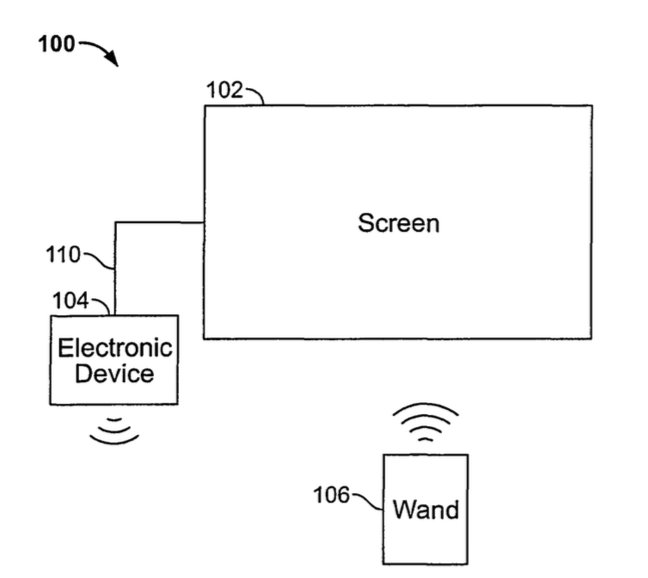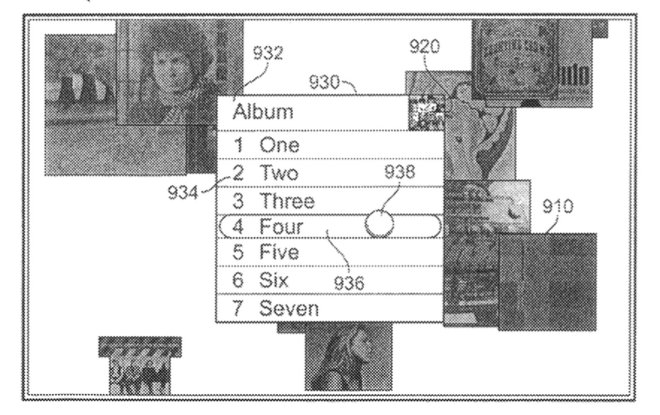The U.S. Patent and Trademark Office on Tuesday issued an invention for a new kind of Apple TV remote control, giving viewers the ability to gesture with a "remote wand" in order to navigate around the user interface, in what could be the latest evidence Apple is looking to substantially alter the user experience of its set-top streamer.

The patent discovered by AppleInsider, titled "Scrolling Displayed Objects Using a 3D Remote Controller in a Media System," describes a system consisting of a screen, an electronic device connected to the screen, and a remote wand. It could also be expanded to include a "host device" from which content would be streamed before being relayed to the television, a setup that corresponds to the use of an Apple TV with iTunes Home Sharing.
Apple argues that the current method of controlling such an arrangement, including physical buttons or touchscreen interfaces -- like the Apple Remote app --Â "may be effective," but "they may also be inefficient and non-intuitive, which may sometimes lead to frustration."
The company's solution is to provide a gesture-based control scheme. Apple has been seen exploring such a system since at least 2009 --Â this newly-granted patent was filed in 2007Â -- though the most recent effort contemplates a "smarter" wand device.

In this embodiment, the wand could contain a number of sensors and even a touchscreen that would allow for textual input, rather than being a simpler Wiimote-style part. This would seem to describe an iPhone or iPod touch, though Apple's $345 million acquisition of Kinect sensor maker PrimeSense could mean that future versions might simply use hand gestures.
Various functions could be controlled in this manner, such as selecting videos and scrubbing through media files. One interesting addition involves the ability to interact with a screen saver without exiting screen saver mode --Â much like the OS X "iTunes Artwork" screen saver that allows users to play an album by clicking on its cover without disabling the screen saver.
Apple credits Duncan R. Kerr of San Francisco, CA and Nicholas V. King of San Jose, CA as the inventors of U.S. Patent No. 8,881,049.